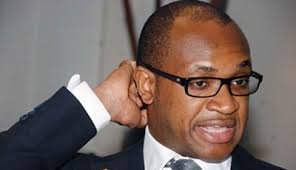The First City Monument Bank Nigerian (FCMB) Limited has said restrictions in foreign-currency trading are the biggest risk to banks in Nigeria as they struggle against a slump in oil prices and a weak naira.
“What we clearly see is a very tough half year,” the Chief Executive Officer, FCMB Limited, Ladi Balogun, said in an interview with Bloomberg in Lagos.
He added: “It is important we restore liquidity in the foreign exchange market as quickly as possible.”
The Central Bank of Nigeria ( CBN ) applied rules and restrictions to stabilise the naira after it declined to a record low in February as the price of oil, the nation’s major foreign-exchange earner fell by a half in the second half of last year. The CBN has devalued the naira twice since November and prevented banks from buying dollars in the interbank market without matching orders, measures that eventually stabilised the exchange rate while reducing liquidity.
The domestic currency has dropped 17 per cent against the dollar in the past six months, the most among 24 currencies, according to Bloomberg.
Pressure on the naira eased slightly after portfolio inflows into the economy increased following last month’s presidential elections, CBN Director of Financial Markets, Emmanuel Ukeje, said this week.
“Our hope is that as we get better on our balance of payments generally some of these restrictions will be relaxed,” Balogun said.
“When there is pressure on the currency, we all have to pay the price. The banks are paying the price of reducing the level of foreign exchange trading that they are doing.”














